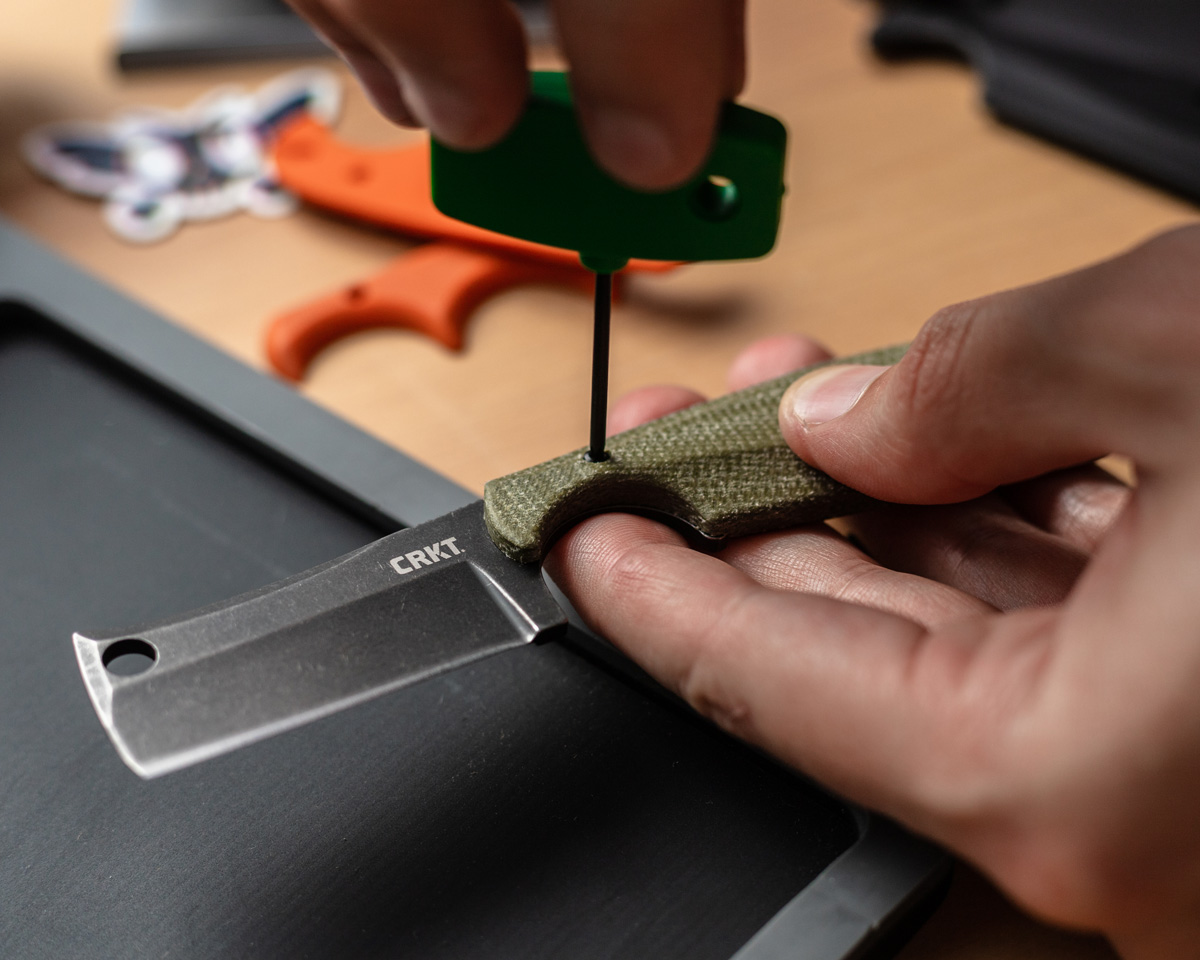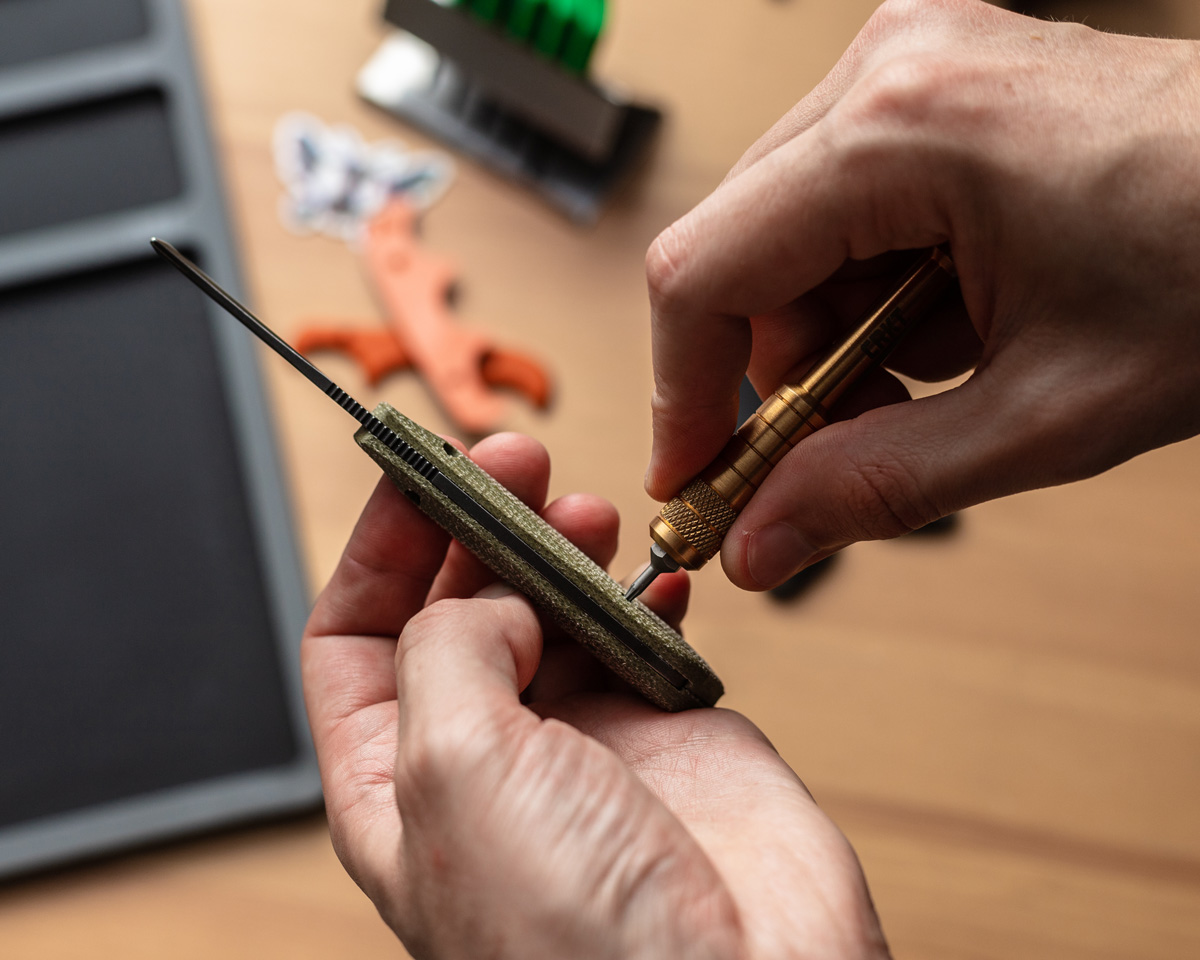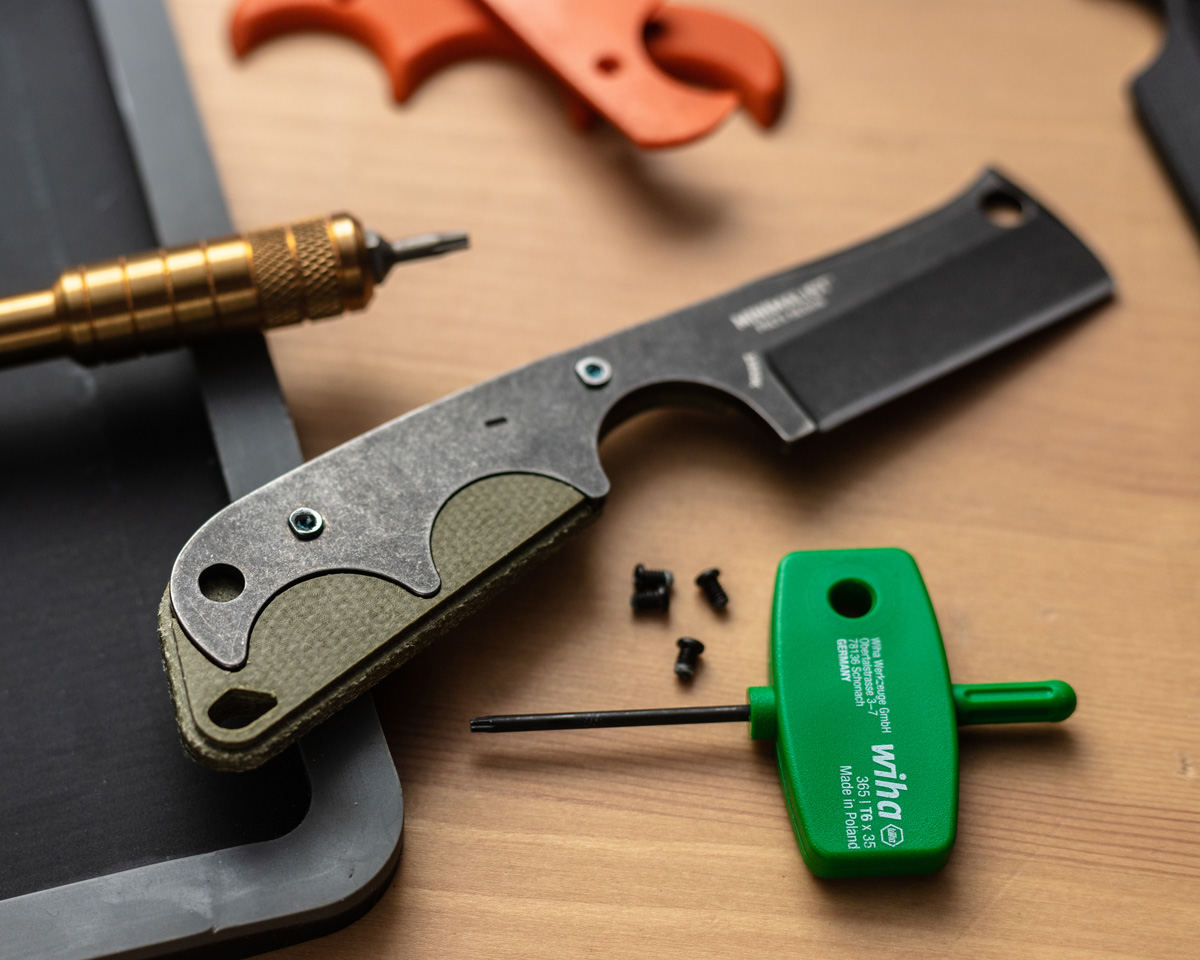Knife Care: The Ultimate Guide to Proper Maintenance

You got a shiny new knife, and you want to keep it that way. So, how do you take care of a pocket knife to keep it looking and working its best? Knife maintenance is important—whether you use it for camping, hunting, or simple everyday tasks, proper care will ensure its longevity and optimal performance. Luckily, knife maintenance is also relatively simple!
In this guide, we’ll share the essential tips and tricks for keeping your knives in top shape so they remain reliable tools for years to come.
Clean After Every Use
One of the most fundamental aspects of knife maintenance is keeping it clean. After each use, assess the cleanliness of the blade. Whether it’s grime, food residue, dust, or any other debris, clean any foreign substance off the blade before putting it away.
Most of the time, all it takes is a quick wipe with a clean cloth. If that’s not enough, a gentle rinse with soap and water is in order. If it’s a folding knife, avoid getting water around the pivot area and under the handle scales, since those areas will retain moisture. Stubborn substances like glue or tape residue may require a bit of chemical persuasion to come off—we recommend isopropyl alcohol as it is safe to use and readily available.
Lubricate Your Knife Regularly
A well-lubricated pocket knife is both more reliable and more enjoyable to use. Lubrication helps prevent corrosion, reduces friction, and ensures a swift opening and closing action. If your pocket knife is feeling gritty to operate and you’ve already tried cleaning it, apply a small amount of quality knife oil to the bearing surfaces around the pivot and on the detent ball, if applicable.
Remember to open and close the knife several times after applying the oil to distribute it evenly. Do not over-lubricate any locking surfaces; that can lead to “lock stick” or worse, compromise the safety of the locking mechanism itself.
Check and Tighten Knife Screws

Over time, the screws on your pocket knife may loosen due to use or external factors. Periodically check the screws to ensure they are tight, and use a quality screwdriver that fits the screws properly to avoid stripping them—a good set of torx bits makes all the difference! Loose screws can affect the knife’s strength, stability, and overall performance.
Keep the Handle Clean
The handle of your pocket knife deserves attention too. Depending on the material, clean the handle using an appropriate method. For instance, wooden handles may require occasional oiling or waxing to prevent drying and cracking.
Synthetic handles—G10, FRN, Micarta, or carbon fiber—can be cleaned with mild soap, water, and gentle scrubbing with a cloth or soft bristle brush. Take care to dry thoroughly before storage.

Carbon Steels Need Extra Care
If your blade is made from carbon steel, it’s going to require special attention due to its susceptibility to rust. In addition to keeping it clean and dry, you can protect it by applying a thin coat of food-grade mineral oil or a specialized knife oil on the blade to create a barrier against rust. Over time, it’s normal for carbon steel to develop a patina. This unique aging process can actually help protect the blade, so don’t stress too much about some mild discoloration. If you see powdery or flaky red rust spots, however, address them promptly with a light abrasive pad to keep them from affecting the blade’s integrity.
Blade Sharpening
A sharp blade is not only more efficient but also safer to use. Even the most advanced super-steels need periodic sharpening! For more information on sharpening, consult our in-depth guide.
Avoid Excessive Force
The easiest way to ruin the condition of any knife is to push it past its limit. Avoid using excessive force when cutting or performing other tasks, as it can lead to edge damage, a broken tip, or even injury. Choose the right tool for the job, and keep your knife sharp so it can do the work.
Store Properly
When not in use, store your knives in a dry place, away from extreme temperatures and humidity. Adding a few desiccant bags to your knife case will help keep ambient moisture in check. Avoid storing fixed blades in leather sheaths for long periods of time, since leather has a tendency to trap moisture which will lead to corrosion.
Conclusion
By making cleaning, lubricating, tightening, sharpening, and proper storage part of your routine, you’ll keep any pocket or fixed-blade knife performing like new. Ready when you need it and protected from rust, grit, and loose hardware.